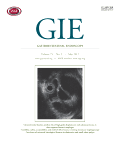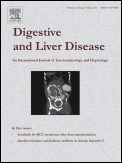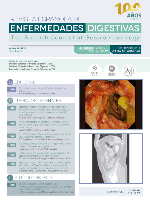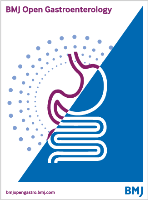
PRACTICAL GASTROENTEROLOGY
Scope & Guideline
Navigating the Frontiers of Gastroenterology Research
Introduction
Aims and Scopes
- Clinical Nutrition and Gastroenterology:
A core focus on the nutritional needs of patients with various gastrointestinal conditions, including inflammatory bowel disease (IBD), esophageal disorders, and liver diseases. - Endoscopic Techniques and Innovations:
An emphasis on advancements and best practices in endoscopic procedures, including ERCP, EUS, and novel endoscopic treatments for a range of gastrointestinal issues. - Management of Gastrointestinal Disorders:
Practical approaches to the diagnosis, treatment, and management of common gastrointestinal disorders, including Crohn's disease, ulcerative colitis, and liver diseases. - Multidisciplinary Care Approaches:
Highlighting the importance of coordinated care among various healthcare professionals, including gastroenterologists, dietitians, and surgeons, to enhance patient outcomes. - Patient Safety and Quality Improvement:
A commitment to improving patient safety through the identification of adverse events, treatment complications, and strategies to mitigate risks in gastrointestinal care.
Trending and Emerging
- Nutritional Interventions in Gastrointestinal Disease:
There is a marked increase in publications focusing on the role of nutrition in managing gastrointestinal disorders, such as the impact of diet on IBD and nutritional considerations for surgical patients. - Innovative Endoscopic Techniques:
Emerging trends highlight advancements in endoscopic procedures, such as endoscopic sleeve gastroplasty and novel techniques for managing esophageal strictures, illustrating a shift towards minimally invasive interventions. - Integration of Technology in Gastroenterology:
The use of artificial intelligence and advanced imaging techniques in diagnosing and treating gastrointestinal diseases is gaining momentum, reflecting a broader trend towards technology-driven healthcare solutions. - Multidisciplinary Management of Complex Cases:
An increasing number of publications emphasize the importance of a multidisciplinary approach to complex gastrointestinal conditions, including collaborations among gastroenterologists, surgeons, and nutritionists. - Focus on Pediatric Gastroenterology:
There is a growing trend in addressing gastrointestinal issues specific to pediatric patients, particularly in relation to nutritional management and the impact of chronic conditions like IBD in children.
Declining or Waning
- Traditional Pharmacological Approaches:
There appears to be a waning interest in discussing standard pharmacological treatments for gastrointestinal conditions, as the focus shifts toward more innovative therapies and nutritional interventions. - Basic Research and Theoretical Studies:
The journal has moved away from publishing purely theoretical studies or basic science research, emphasizing instead practical applications and clinical relevance. - General Gastroenterology Topics:
Specific topics that once received considerable attention, such as general gastrointestinal anatomy or physiology, are being overshadowed by more focused discussions on treatment modalities and patient management.
Similar Journals

GASTROINTESTINAL ENDOSCOPY
Exploring Cutting-Edge Techniques in Gastrointestinal EndoscopyGASTROINTESTINAL ENDOSCOPY, published by MOSBY-ELSEVIER, stands as a leading journal in the fields of gastroenterology and radiology, boasting an impressive impact factor that reflects its esteemed position within the academic community. Established in 1965 and set to continue through 2024, this journal is critical for disseminating high-quality research that informs clinical practice and enhances patient care. With a robust Scopus ranking — 25th out of 333 in Radiology, Nuclear Medicine and Imaging, and 15th out of 167 in Gastroenterology — it proudly maintains a #1 quartile status in both disciplines as of 2023. While the journal does not offer open access, it remains invaluable for researchers, professionals, and students seeking to stay ahead in the rapidly evolving fields of gastrointestinal pathology and innovative endoscopic procedures. Its comprehensive scope encompasses technological advancements, clinical studies, and critical reviews, making it a vital resource for advancing knowledge and supporting professional development.

DIGESTIVE AND LIVER DISEASE
Unlocking the complexities of digestive and liver diseases.DIGESTIVE AND LIVER DISEASE is a prominent journal published by Elsevier Science Inc, dedicated to advancing the field of gastroenterology and hepatology. With an ISSN of 1590-8658 and an E-ISSN of 1878-3562, this journal has established itself as a significant resource within the academic community, especially considering its Q2 ranking in both gastroenterology and hepatology categories as of 2023. Spanning from 2000 to 2024, the journal presents a diverse array of peer-reviewed articles, clinical studies, and review papers that explore the latest advancements and research findings in digestive and liver diseases. The journal's robust impact, reflected in its Scopus rankings—40th out of 167 in gastroenterology and 28th out of 82 in hepatology—highlights its critical role in shaping practices and understanding in these vital areas of medicine. With open access options available, DIGESTIVE AND LIVER DISEASE aims to make high-quality research accessible to a wider audience, thereby encouraging collaboration and innovation. Researchers, healthcare professionals, and students alike will find valuable insights into the complex mechanisms, diagnostics, and therapeutic strategies pertinent to digestive and liver health.

JOURNAL OF GASTROENTEROLOGY
Leading the way in gastroenterology research excellence.JOURNAL OF GASTROENTEROLOGY, published by SPRINGER JAPAN KK, is a premier academic journal that has been at the forefront of gastrointestinal research since its inception in 1994. With an impressive Impact Factor and ranking in the top quartile (Q1) of its category, this journal holds a significant place in the field of gastroenterology, currently ranked 12th out of 167 in Scopus, placing it in the 93rd percentile. The journal serves as an essential platform for disseminating innovative research, clinical studies, and reviews that foster advancements in the understanding and treatment of gastrointestinal diseases. Although it does not offer Open Access options, it provides researchers, clinicians, and students access to crucial insights and breakthroughs pivotal to improving patient care and outcomes in gastroenterology. With a commitment to high-quality peer-reviewed content, JOURNAL OF GASTROENTEROLOGY plays a vital role in shaping the future of gastrointestinal health and research.

REVISTA ESPANOLA DE ENFERMEDADES DIGESTIVAS
Elevating clinical practices through open access knowledge.REVISTA ESPANOLA DE ENFERMEDADES DIGESTIVAS, a pivotal Open Access journal published by ARAN EDICIONES, S A, has been at the forefront of advancing the field of gastroenterology since its inception in 1990. With a robust commitment to disseminating high-quality research, the journal provides a platform for researchers, clinicians, and students to share innovative findings and insights concerning digestive diseases. The journal is characterized by its Q3 ranking in both Gastroenterology and Miscellaneous Medicine categories, indicative of its significant contributions to these fields, and is positioned within the 36th percentile of Scopus rankings for medicine related to gastroenterology. Based in Spain, REVISTA ESPANOLA DE ENFERMEDADES DIGESTIVAS has embraced the Open Access model since 2004, ensuring that its articles are readily available to a global audience without financial barriers. The journal not only supports academic discourse but also plays a crucial role in improving clinical practices and health outcomes related to digestive health.

Clinical and Experimental Gastroenterology
Empowering clinicians with cutting-edge insights in gastroenterology.Clinical and Experimental Gastroenterology is a prestigious Open Access journal published by DOVE MEDICAL PRESS LTD, dedicated to advancing the field of gastroenterology through rigorous research and innovative insights. With its ISSN 1178-7023, the journal has established a significant presence since its inception in 2008 and has been actively contributing to the academic landscape from New Zealand. The journal has attained a commendable Q2 rank in the Gastroenterology category as of 2023, placing it in the upper-tier percentile of similar journals. It currently ranks #57 out of 167 in the Scopus database, highlighting its relevance and impact in the field at the 66th percentile. Encompassing a wide range of topics within gastroenterology, the journal aims to foster discussion and disseminate findings that enhance clinical practices and patient care. Researchers, healthcare professionals, and students alike will find this journal an invaluable resource for cutting-edge research and developments in gastrointestinal health.

WORLD JOURNAL OF GASTROENTEROLOGY
Transforming knowledge into practice in gastroenterology.WORLD JOURNAL OF GASTROENTEROLOGY, published by BAISHIDENG PUBLISHING GROUP INC, stands at the forefront of gastrointestinal research, providing a critical platform for the dissemination of high-quality studies in the field. With an impressive impact factor reflected in its Q1 rankings in both Gastroenterology and Miscellaneous Medicine, this journal is recognized for its rigorous peer-review process and commitment to advancing knowledge and practices related to digestive health. Covering comprehensive scopes from clinical advancements to innovative therapies, the journal serves an essential role for researchers, clinicians, and students, enabling them to stay updated on the latest developments and findings from 1998 through 2024. The open access model facilitates broader accessibility, ensuring that groundbreaking research reaches a global audience. The journal's ranking within the top 15% of Scopus demonstrates its significant contribution to the academic community, making it a valuable resource for advancing the science of gastroenterology.

Minerva Gastroenterology
Connecting Researchers and Practitioners in GastroenterologyMinerva Gastroenterology, published by EDIZIONI MINERVA MEDICA, is a notable academic journal dedicated to advancing the field of gastroenterology and related disciplines. With an ISSN of 2724-5985 and an E-ISSN of 2724-5365, this journal gathers innovative research from diverse areas including internal medicine, endocrinology, and metabolism. Though characterized by its open-access policies, Minerva Gastroenterology aims to provide a platform for high-quality scholarly articles with an emphasis on critical reviews, clinical studies, and translational research. Since its inception in 2021, the journal has managed to secure a reputation reflected in its Q3 rank across multiple categories in 2023, as well as its standing in Scopus rankings, positioning it in the 45th to 47th percentile among renowned medical journals. Situated in Turin, Italy, it fosters collaboration and knowledge-sharing among researchers and practitioners, making it an essential resource for those seeking to deepen their understanding of gastroenterological conditions and enhance clinical practices.

Translational Gastroenterology and Hepatology
Connecting Research to Real-World Solutions in Hepatology.Translational Gastroenterology and Hepatology, published by AME Publishing Company, stands as a pivotal platform for advancing the understanding and treatment of gastrointestinal and liver diseases. With its focus on translational research, this journal aims to bridge the gap between laboratory discoveries and clinical applications, thus fostering improvements in patient care. Although specific metrics like H-Index and Scopus ranks are currently unavailable, the journal is committed to maintaining high standards of scholarly communication and excellence. As an open-access publication, it ensures that valuable findings are readily accessible to a global audience, promoting collaboration and innovation among researchers, clinicians, and healthcare professionals invested in gastroenterology and hepatology. The journal's dedication to disseminating groundbreaking research makes it an essential resource for those seeking to stay at the forefront of these ever-evolving fields.

Canadian Journal of Gastroenterology and Hepatology
Connecting Researchers and Practitioners in Digestive HealthCanadian Journal of Gastroenterology and Hepatology, published by HINDAWI LTD, serves as a vital resource in the fields of gastroenterology and hepatology. Since its inception in 1987, this open-access journal has made significant contributions to advancing research and clinical practice through its comprehensive coverage of topics ranging from liver diseases to gastrointestinal disorders. With an impressive Q2 ranking in Gastroenterology and a Q3 ranking in Hepatology as of 2023, the journal has established itself as an influential platform for researchers and healthcare professionals seeking to disseminate and acquire knowledge. The journal is based in Egypt, with its operational headquarters located in London, England. Notably, it holds a respectable standing in Scopus rankings, placed at Rank #64 in Gastroenterology and Rank #34 in Hepatology, reflecting its impact and relevance in the medical community. With a commitment to quality and accessibility, the Canadian Journal of Gastroenterology and Hepatology continues to foster innovation and collaboration among its readers.

BMJ Open Gastroenterology
Leading the Way in Innovative Gastroenterological ResearchBMJ Open Gastroenterology is a premier open access journal published by the esteemed BMJ Publishing Group, focusing on the dynamic and evolving field of gastroenterology. Established in 2014, the journal has rapidly ascended in stature, reflected in its impressive 2023 Q1 ranking in gastroenterology and its position within the top 25% of journals in the category according to Scopus. With a mission to disseminate high-quality, peer-reviewed research with global significance, the journal provides a vital platform for researchers, professionals, and students alike to share their findings and advancements in gastrointestinal medicine. Operating from its headquarters in London, England, the journal's open access format ensures wide visibility and accessibility of cutting-edge research, making it an invaluable resource for those dedicated to improving patient care and driving innovation in gastroenterological sciences. By engaging with this journal, contributors and readers can stay at the forefront of critical developments in the field, fostering a collaborative environment for knowledge exchange.